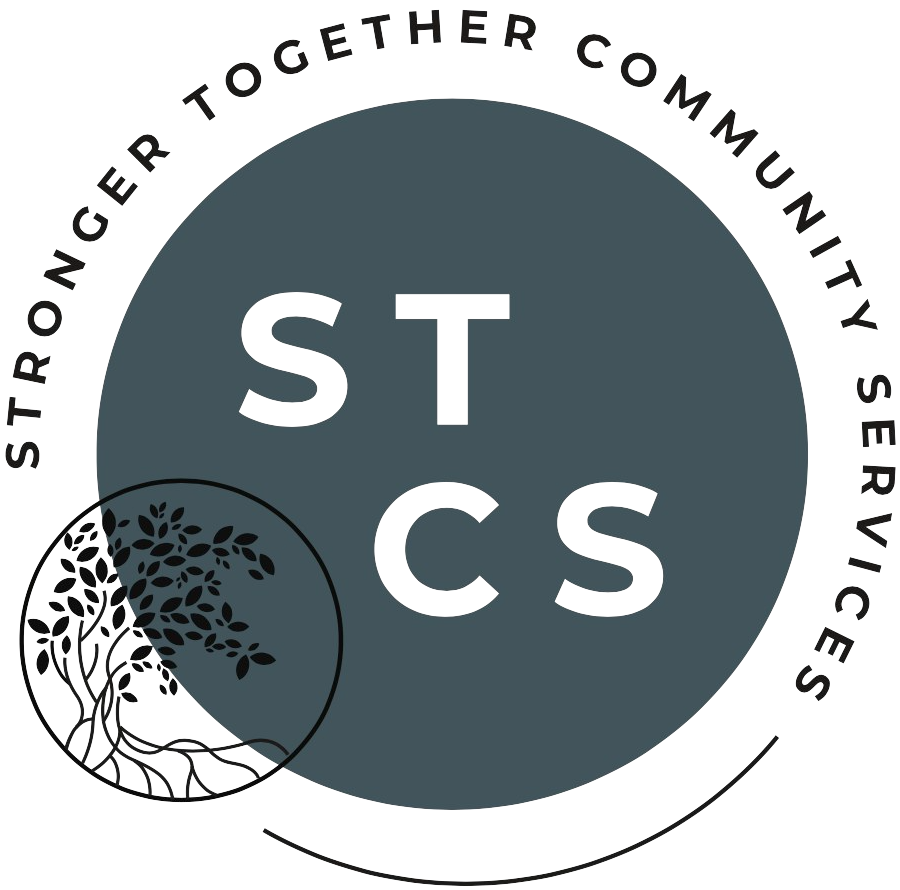Education and Training Groups for Leaders and Employees
Stronger Together Community Services, a mental health non-profit located in San Diego, California, is facilitating groups for leadership teams and employees to discuss challenges with work/life balance, stress and anxiety, burnout, and other common experiences within their given field.

The space is designed as an experiential workshop for your team to help increase awareness of common mental health themes that arise in professionals, learn coping skills, build community, and navigate stress in a safe place. Groups are facilitated by Dr. Allison Brownlee and a team of experienced therapists who will provide education and tools on how to prioritize mental health at work, guide your team through exercises aimed to enhance overall emotional and mental wellness and invite participants to engage in reflective and mindful activities with their peers. Groups are tailored to your team’s needs!
Training Topics for Employees:

- Stress Identification and Management: Learning how to know when you are reaching your edge and what coping skills can help when you are feeling overwhelmed.
- Anxiety Regulation Skills: Understanding what anxiety is and how you can calm yourself in times of high distress.
- Handling Workplace Stress and Conflict: Learn quick skills to help you regulate when you are struggling with colleagues, clients, administrators, and others at work, and discover communication and conflict resolution
- Culture of Inclusion: Introduction to diversity equity, inclusion, and belonging (DEI-B). Look at how to bring these values to the forefront of your company; creating a culture of health that puts people first. Cultivate a community that celebrates differences and promotes inclusion and equity. Learn how to harness the power of social connection and increase collaboration with team-based initiatives and meaningful daily interactions.
- The Effects of Digital Stress, Sleep, and Burnout: Digital stress has been associated with psychological outcomes such as burnout, depression, and anxiety. There is also a perceived social pressure to be constantly available and connected. Learn about the causes of burnout, how to spot symptoms, and ways to de-stress before you reach burnout.
Training Topics for Leaders:

- Fostering an Inclusive Culture: Find out how to integrate DEI-B principles into policies and procedures.
- Emotional Intelligence Training: Become a leader who can relate to the thoughts, emotions, or experiences of others. Learn the tools to see and interpret non-verbal body language, grow in self-awareness, and learn to harness employee emotions and apply them to problem-solving, team motivation, and building supportive relationships.
- Conflict Resolution and Effective Communication: Learn about the impact of workplace conflict and know how to quickly and effectively resolve it. Improve cooperation, enhance productivity, and increase employee motivation and employee retention. Communication skills training can help you overcome common barriers to effective communication with your employees by teaching you how to provide clear, direct, and motivating statements, give constructive feedback, regularly converse with your team, and listen to their needs and input.
- Dealing with Change and Transitions: Help employees cope with change by understanding what drives it and the uncertainty that surrounds it, how people respond to it, and how to use it to learn a different, more effective, and productive way of doing things. Training might include points on challenges brought on by change, the importance of resilience, and opportunities presented by change.
- Building a Foundation of Trust and Respect within Company Culture: Building off training and skills developed in the effective communication program, leaders will learn to be transparent and consistent, practice active listening, and discover the best ways to encourage confidence in their employees so they also feel motivated to openly share input or provide feedback.
- Leading Across Cultures: Since the rise of remote work, it’s become even more common for teams to collaborate across time zones and entire continents. Leaders of global organizations should feel comfortable making the structural and process changes necessary to support their dispersed teams. Leading across cultures also requires skills like active listening, openness, curiosity about cultural differences, and respect for multiple perspectives on the same issue.
Dr. Brownlee, LMFT 89484 is available for speaking engagements including seminars, conferences, workshops, and trainings for professional organizations and small businesses.

